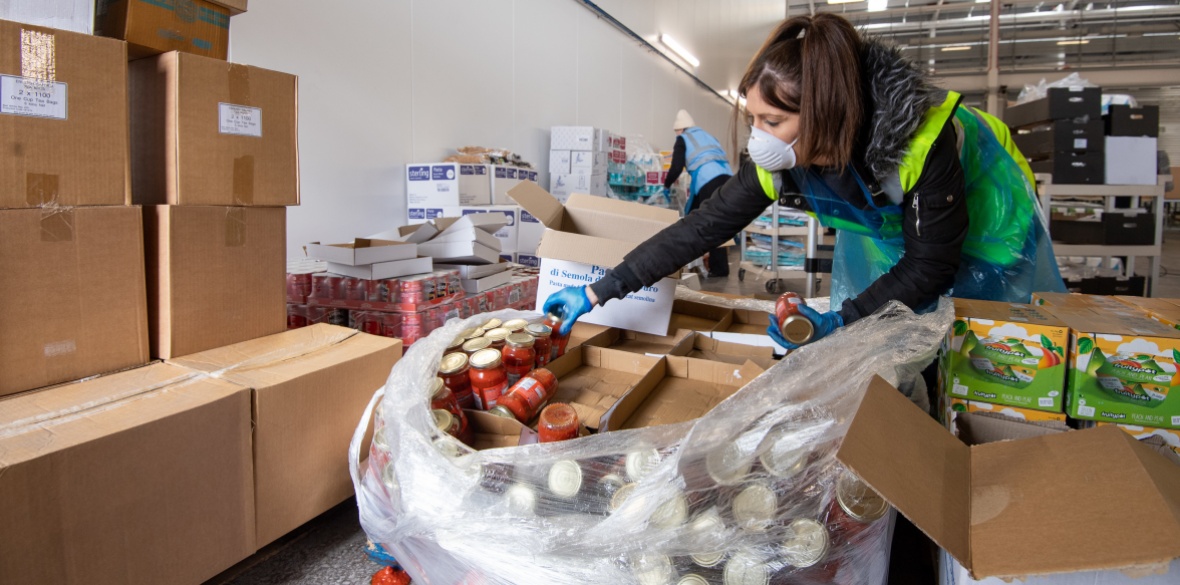This is the last article you can read this month
You can read more article this month
You can read more articles this month
Sorry your limit is up for this month
Reset on:
Please help support the Morning Star by subscribing here
WHO will pay for the coronavirus crisis? Already there is pressure that the lowest paid should get even less money to pay for all the emergency funding: the pressure is coming from mainstream corporate and business-oriented Establishment figures.
We haven’t seen a big mobilisation by the political right demanding the poor shoulder the burden, but we surely will.
You might think the coronavirus crisis shows up all the bad things about austerity Britain — the underfunded public services, the danger of zero-hours employment and private rentals.
You might think the crisis shows what we should really value — the need for collective solutions and the vital importance of the low paid in keeping the nation together.
But that doesn’t mean powerful forces won’t push for more austerity to “fix” the system after the pandemic has passed.
The government is using a lot of financial muscle to deal with coronavirus.
It is finding it hard because it has forgotten how to use the state, and it goes against its instincts. But it is doing it.
The alternative was to go full social-Darwinian and they were — rightly — scared this would leave Britain the “sick man of Europe.” Literally.
But Rishi Sunak is shouldering the money bazooka and firing shots to save capitalism, not to change it.
When the crisis has passed, there will be an argument that it shows we want better funding of public services and owe a debt to the low-paid workers who kept us going. But it is not an argument the government will make.
It will listen to the counter-argument. Somebody has to pay. And it won’t be me and my mates.
Here is one early sign. Bryan Sanderson is the chair of the Low Pay Commission, which sets the minimum wage.
On April 1 he announced the planned minimum wage increase — to £8.72 an hour.
Sanderson paid tribute to “many of the nation’s key workers” in “for example, the care sector, agriculture, transport and retail” who are “continuing to work in very difficult conditions” and will benefit from the increase.
However, he also took the opportunity to warn that the low paid might have to pay in the future.
Boris Johnson won the election by arguing he was a different kind of Tory who cared a lot about working people.
This included a promise to give all over-21s a stronger minimum wage rated at two-thirds of average earnings by 2024: on current figures, that means a £10.50/hour minimum wage for over-21s.
But Sanderson warned this election promise could be junked: in his official announcement he said an “emergency brake” might have to be applied to slow this wage increase because “the ongoing Covid-19 pandemic clearly represents a very challenging set of circumstances for workers and employers alike and will require us to review whether the emergency brake is required when we next provide our advice to the government.”
Sanderson was made Low Pay Commission chair in 2019. He is a very mainstream corporate figure, not some right-wing Tory “buccaneer” — Sanderson’s past jobs include managing director of BP Chemicals and chairman of Standard Chartered Bank and of Bupa.
He’s held various government roles since the millennium and in 2001 was a public supporter of Blair’s Labour.
His “emergency brake” suggestion followed lobbying by major corporate interests including big retailers and the British Beer and Pub Association: if the business mainstream is joined by the activist right, that’s a powerful set of voices ready to push for cuts, post-coronavirus.
Right now, the Johnson government is busy trying to manage the crisis. Its right-wing outriders are tied up in a bit of shadow-boxing, arguing that we should end the lockdown because the “economy” is more important than people dying.
When the government is past the immediate crisis and its hardcore flank has moved on from pure survival-of-the-fittest craziness, they will line up with big business to pass the cost of the crisis onto the shoulders of everyone below them.
Standard Chartered Bank and ‘Russiagate’
ON TUESDAY, British regulators fined Standard Chartered Bank a record £20.4 million for breaching sanctions over Russia.
It was one more reminder that, while the Establishment love shouting “Russia!” at the left, it’s actually the Tories’ friends in the City who are closest to Vladimir Putin.
Right-wing commentators like the “you are friends of the dastardly Russians” line because it’s a simple “the left aren’t patriotic” ruse that they learned in their childhood.
In truth the left are less keen on nationalistic posturing. But Russia stopped having a Communist Party leadership in 1991.
Putin was elected leader on the nationalist United Russia ticket. Russia hasn’t been a draw for many on the left for decades. But all the cash released by the privatisation of Russian assets has been a draw for the City.
Standard Chartered Bank made huge loans between 2015 and 2018 to a bank called Denizbank, which was in turn owned by Russia’s state-owned Sberbank.
Because it is government-owned Sberbank was subject to European sanctions over the Russian invasion of Ukraine.
So when Newsnight were putting pictures of Jeremy Corbyn in a “Russian-looking” hat in front of the Kremlin on the telly, Standard Chartered was lending millions to Russian-owned banks.
Sir John Peace was Standard Chartered chairman from 2009 to 2016, so for some of the time of the loans.
Sir John has moved on since then, but he is a typical City figure, and also a major Tory donor: John Peace personally gave the Tories £67,000 between 2017 and 2019.
So the Tories friends are linked to sanctions-busting loans to Russia, but Labour gets the “Russians!” treatment.











